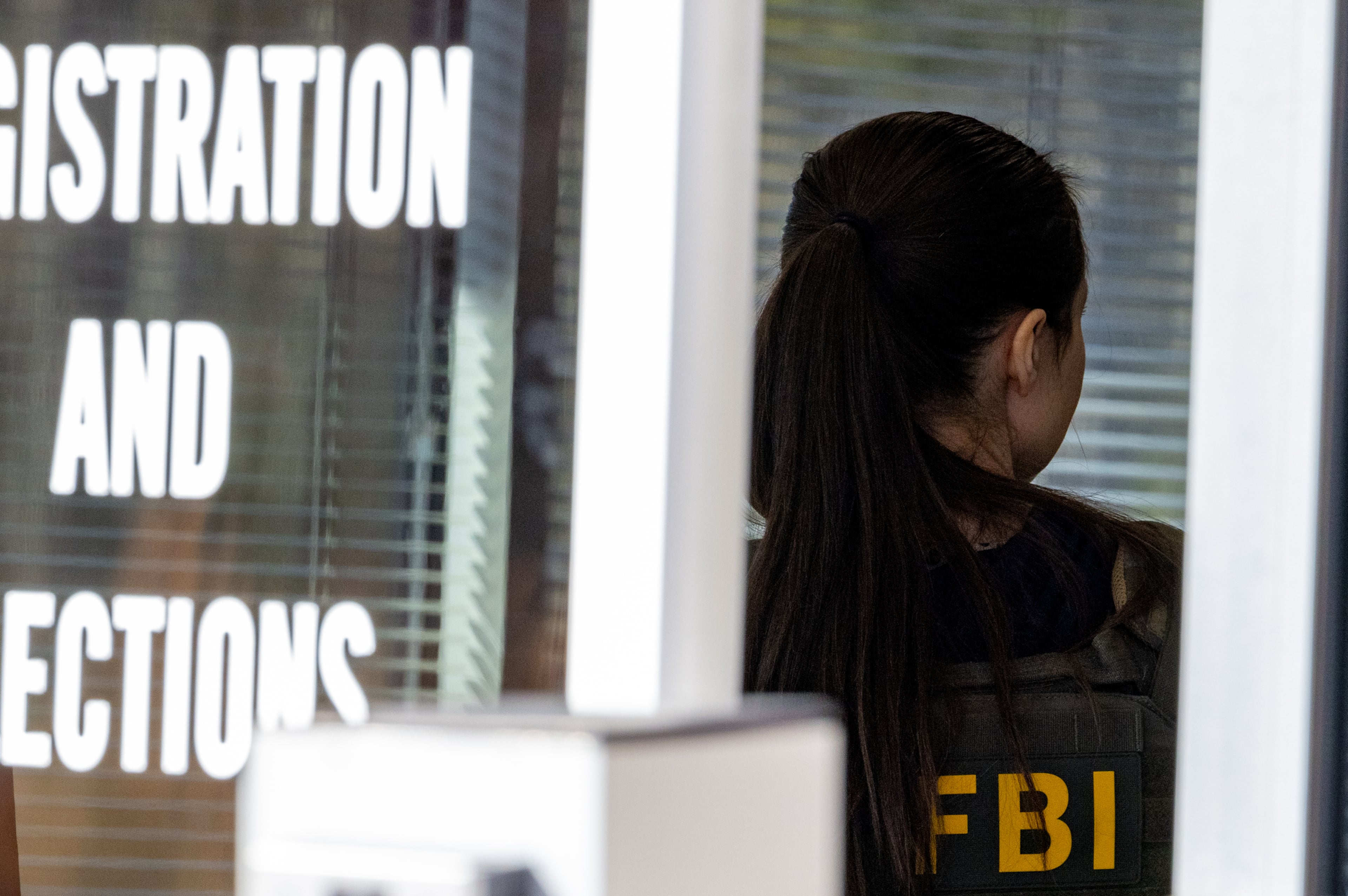OPINION: Why isn’t Stacey Abrams winning?

When Stacey Abrams ran for governor in 2018, she and her team made the case that Democrats in Georgia could finally win statewide again if they would simply be bold.
Instead of the mush-mouthed, half-apology moderate version of the party Democrats had been using and losing with for nearly two decades, Abrams argued that the future of the state was multiracial and multicultural — and that the politics of that Georgia would be unambiguously progressive.
The Abrams’ way nearly won — she came within two percentage points of defeating Republican Brian Kemp. And Democrats famously swept Georgia in 2020 and 2021, fueled largely by a ground game seeded by Abrams in 2018 and Georgians’ rejection of former President Donald Trump at the polls.
But less than two weeks away from Election Day, the Abrams way faces its biggest, and possibly final test. Can the progressive politics she’s pushed for so long really make her governor?
That was the vision on display from Abrams this week on the stump, where she delivered detailed policy proposals mixed with punchy one-liners to a crowd of about 200 on the town green in Newnan.
Abrams pumped them up with a speech that ripped Kemp for his positions on everything from guns to abortion to the economy and more.
“This is our Georgia. We are one Georgia and we will have victory,” she said. “We will have a governor who cares about us and shows up to help us, not just the folks like him.”
On gun safety, Abrams hammered Kemp for signing the new Georgia law that eliminates the requirement to have a permit to carry a concealed firearm.
“I know how to shoot a gun. My great-grandmother taught me, her name was Moo Moo,” she said in a voice hoarse from day-to-night campaigning. “She taught me…you don’t point that weapon at anything you don’t plan to shoot at, even in a commercial.”
On abortion, Abrams said Kemp broke “the promise of freedom” for women
“It took a man to break that promise. It’s going to take a woman to put it right,” she said.
Abrams joked to the crowd afterward as they squeezed in for a group selfie, “Y’all come in close. Do not storm the Capitol,” she laughed. “Just come on in.”
It’s hard to understand why this Stacey Abrams — relaxed, focused, and embraced by the crowd — isn’t doing better in the polls, having come so close to Kemp the first time around.
Her camp argues that the polls, especially the ones that show her lagging behind Kemp by as many as 10 points, are just wrong — that women, in particular, will come out to reject Republicans after the Dobbs decision.
But the same polls show Sen. Raphael Warnock ahead of or tied with his GOP rival, Herschel Walker.
Frank Donaho, a retired real estate appraiser in Coweta County said he likes Abrams, “Because I think she’s right. And I’m tired of the Trump world.” But he also thinks Democrats could do a better job talking about the economy.
Jameka Beadles, a school nurse, said abortion rights are a major issue for her. But like Donaho, so is the economy. “I like her plan to raise teacher pay because teachers I know have to work two jobs to make ends meet,” she said.
One of the biggest challenges for Stacey Abrams 2.0 is Brian Kemp 2.0. The Kemp of 2018 was easy enough for Abrams to paint as a “cartoon villain.” He was a Trump-endorsed, gun-wielding, round-up-the-“illegals”-in-my- pickup secretary of state who had stayed on the job to oversee his own election.
But four years later, the governor is now a sworn enemy of Trump, specifically because he refused to throw the 2020 election in Trump’s favor. Kemp never did get in that pickup to round anyone up, and after three years of crises and upheaval, the state is still standing.
While Kemp became a familiar face in Georgians’ living rooms after 2018, Abrams became a bona fide superstar, far away from Georgia and the daily grind of politics.
She was nominated for an Emmy and a Nobel Peace Prize. She delivered the Democratic response to Trump’s 2019 State of the Union and testified before Congress on voting rights.
A 2019 Vogue profile speculated she might run for president. A Washington Post article featured a photograph of her wearing a superhero cape.
Once back in the race, Abrams has been on the receiving end of far more less glowing headlines, especially recently. A judge threw out the Fair Fair lawsuit challenging the 2018 election between her and Kemp. The group she founded was also the subject of a Politico investigation that showed huge legal fees going to the law firm of her campaign chairwoman.
And Abrams’ decision not to concede the 2018 race has taken on a much different feel since Donald Trump did much the same in 2020 (but also likely broke state and federal laws in the process).
Abrams could have continued to write novels, produce movies, and speak out on voting rights when it made sense for her and her brand. Her decision to seek a rematch against Kemp seems like the riskiest choice of all.
How she performs on election day will determine if Democrats in the state have found the durable path to victory through Abrams’ vision of the New Georgia, or whether they will need to go back to the drawing board yet again.



